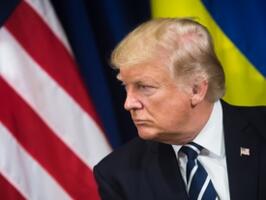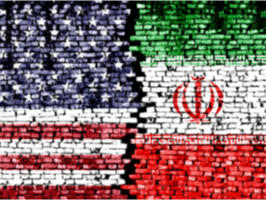Back to the Future: Obama's Foreign Policy
A Commentary By Michael Barone
As Barack Obama finishes up his second major foreign tour, a pattern in his approach to foreign policy seems to be emerging. On pressing matters of obvious importance, he has made responsible decisions that have not been far out of line with the policies of his predecessor and current necessities. But when it comes to setting priorities for the future, he has chosen to emphasize initiatives that seem more appropriate to situations America faced in his college years, the late 1970s and early 1980s, than to the threats America faces today.
Candidate Obama campaigned as the man who would lead us out of Iraq. President Obama, admitting belatedly and begrudgingly the success of George W. Bush's surge strategy, decided to keep large numbers of troops there for another 19 months and an unspecified number after that. Responsibly, he decided not to snatch defeat from the jaws of victory. On Afghanistan, in line with his campaign rhetoric that this was the good war Bush was neglecting, he has decided to send in more troops, and his envoy Richard Holbrooke has pressed the Pakistani government to fight the Islamist terrorists, too.
On Easter week, confronted with the seizure of an American ship captain by Somali pirates, he authorized negotiations but apparently insisted that no ransom be paid and that the pirates not be set free. And he authorized the use of deadly force, with the happy result that three Navy Seal bullets killed three pirates and the captain was rescued. Some critics grumbled that he had no other course. But I give him credit here, as on Iraq and Afghanistan, for making responsible choices under considerable pressure.
His choice of priorities for the future is another thing. The climax of his European trip was his speech in Prague on April 5 (don't look for it on the White House Website; the latest speech text there is dated Feb. 27) on "the future of nuclear weapons in the 21st century" in which he called for "a world without nuclear weapons." A noble goal, and one shared incidentally by Ronald Reagan. And how did he propose to start? By negotiating a new nuclear arms control treaty with Russia, getting the Senate to ratify the nuclear test ban treaty and stopping U.S. production of fissile material.
That's all Cold War stuff. Disarmament talks with the Soviets were a central feature of American foreign policy from the late 1960s to the late 1980s, a time when a U.S.-Soviet nuclear war would have produced enormous destruction. But the prospect of a U.S.-Russian nuclear war today is pretty much nil. It's worthwhile to continue the Nunn-Lugar program of corralling Russia's loose nukes -- one of the few issues Obama worked on as a senator -- but making disarmament talks with Russia a first priority is a policy out of the distant past.
To be sure, Obama did talk about nuclear threats from North Korea and Iran, with talk being the operative word. But he promised to defend against the wayward states with "a missile defense system that is cost-effective and proven" -- code words indicating that he shares most Democrats' hostility to missile defense left over from the Cold War era, when they feared it would destabilize the U.S.-Soviet balance of terror. The real need today is a system robust enough to repel and deter the much smaller but much likelier threats from North Korea and Iran.
And what was Obama's major policy announcement before embarking on his trip to Latin America? Lifting restrictions on travel and remittances to Cuba. In 1961, the year Obama was born, Cuba was a central preoccupation of American foreign policy. Today, Cuba (population 11 million) is not a major problem. Meanwhile, the Obama administration violates the NAFTA treaty by banning trucks from Mexico (population 109 million), refuses to ratify the free trade agreement with Colombia (population 44 million) and, despite our need for alternative fuels, makes no move to rescind the 54 cent tariff on sugar ethanol from Brazil (population 191 million).
Obama campaigned as the candidate of hope and change. But on pressing matters, he has, responsibly, not produced as much change as many of his supporters expected. And in setting priorities, he seems to be heading back to the distant past, to the disarmament debates of the 1970s and 1980s, to the frenzy over Cuba in 1961-62. Is that the change we need?
Michael Barone is senior political analyst for The Washington Examiner.
COPYRIGHT 2009 THE WASHINGTON EXAMINER
DISTRIBUTED BY CREATORS SYNDICATE INC.
See Other Political Commentaries
See Other Commentaries by Michael Barone
Views expressed in this column are those of the author, not those of Rasmussen Reports.
Rasmussen Reports is a media company specializing in the collection, publication and distribution of public opinion information.
We conduct public opinion polls on a variety of topics to inform our audience on events in the news and other topics of interest. To ensure editorial control and independence, we pay for the polls ourselves and generate revenue through the sale of subscriptions, sponsorships, and advertising. Nightly polling on politics, business and lifestyle topics provides the content to update the Rasmussen Reports web site many times each day. If it's in the news, it's in our polls. Additionally, the data drives a daily update newsletter and various media outlets across the country.
Some information, including the Rasmussen Reports daily Presidential Tracking Poll and commentaries are available for free to the general public. Subscriptions are available for $4.95 a month or 34.95 a year that provide subscribers with exclusive access to more than 20 stories per week on upcoming elections, consumer confidence, and issues that affect us all. For those who are really into the numbers, Platinum Members can review demographic crosstabs and a full history of our data.
To learn more about our methodology, click here.



